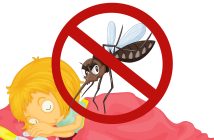Your Kid’s Second Life
How much is too much exposure to the Internet?
Question: My kids are addicted to the
Internet. They spend all their time blogging, chatting with god-knows-who
online and updating their profiles on
Facebook. I want them to socialize in a normal way – how can I encourage this? What’s typical online behavior for kids today? And is it safe?
Wayne C. Barnard
Guidance counselor
International Academy
of Beijing
The key here is to think in terms of moderation in all things. Socializing via Facebook and other social networking is not necessarily “abnormal,” especially if your children are also connecting face-to-face and heart-to-heart with their friends.
A phenomenon we have noticed in US university residence halls is that students will often text a friend who lives in the room next door rather than get up and walk over there to speak face-to-face. Is this abnormal? No, it’s just different. So, perhaps a better question is, “Are my kids socially connected, and do they balance virtual connections with real-life connections?” I’ve noticed with my children that many of their relationships are deeper and more meaningful because of the added dimension of social networking – sharing songs, poetry, photos, and other important means of expressing themselves.
Share your concerns openly with your child; get their perspective on their relationships. Negotiate limits with them, just as you have with watching TV and playing video games. The technology is new, but parents have been setting limits on the latest technological advances for years.
The Internet is safe if it is used safely, just like so many other things. Predators do lurk on the Internet; having an age-appropriate conversation with your child is not a bad idea. But remember, predators are on the streets and in so many other places as well. The Internet places so much information at our fingertips, both good and bad. Educate yourself, don’t be naïve and invest in software to help monitor and screen inappropriate sites.
Finally, I recommend that you have your child teach you about the Internet, and about sites such as Facebook and MySpace. You might be surprised to learn that they are self-monitoring as well. The most important foundation for these kinds of conversations and actions is the relationship you share with your child. Invest your time in building these important connections.
Ron Drisner
School counselor
Yew Chung International School of Beijing
Let’s face it, the Internet can be fun. It’s normal for our kids to want to chat with friends, play games and ‘surf’ the Internet. However, when this begins to interfere with day-to-day functioning, such as spending time with family and friends and doing homework, or starts to disrupt their sleeping patterns, then there’s a problem. Below are tips for parents to help their child gain control of the Internet.
Create clear rules. Set limits about the number of hours that your children can spend online. If they break the rules, the consequence can involve changing the password and limiting their access to the Internet.
Monitor usage. Have your children ask permission before they go online so you know when they’re on the Internet. In addition, don’t allow your child to eliminate the computer’s history log.
Keep the computer in a common area. Place the computer in your dining or living room and walk by several times while your children are online to let them know they are being monitored.
Encourage real-time activities. Help your child reconnect with groups they previously enjoyed or support them in exploring new interests. Have an open door and encourage them to have friends over as much as possible.
Consult a professional. If the problem persists, seek out extra support by sharing your concerns with your child’s teacher, school counselor, or with a professional therapist.
By creating clear limits for your child’s online activity, you are not only showing you care but also teaching them to make better choices.



